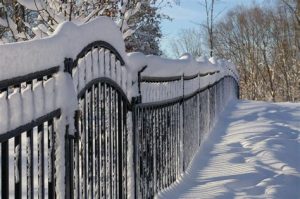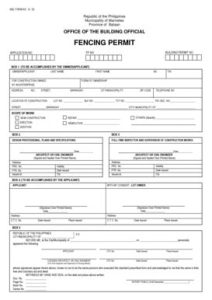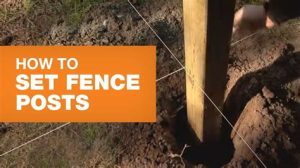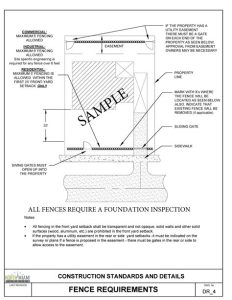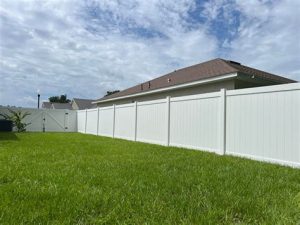Learn the truth about winter fence installation, its challenges, and discover tips and benefits for successfully installing a fence during the colder months.As winter settles in with its chilly temperatures and snowy landscapes, many homeowners may wonder if installing a fence is even feasible during this season. Common myths suggest that the cold weather makes it impossible, leading to uncertainty and confusion. In this blog post, we’ll explore the truth behind these misconceptions and shed light on what it really takes to install a fence in winter. From the effects of harsh weather conditions to the challenges you may encounter, we’ll cover essential tips for a successful winter installation. Additionally, you might be surprised to learn about the unique benefits of choosing this time of year for your fencing project. Join us as we debunk these myths and help you make an informed decision about your fencing needs this winter!
Myth: Fence Installation is Impossible in Winter
The common belief that fence installation is impossible in winter is a myth that has been perpetuated over the years. While colder temperatures and snow can present certain challenges, they do not outright prevent the successful installation of a fence. In fact, with the right planning and techniques, you can achieve a quality installation even during the coldest months.
One of the primary misconceptions is that frozen ground makes digging post holes an impossible task. While it is true that ground freezing can affect the soil’s consistency, professional fence installers use specialized tools and methods to overcome this hurdle. For instance, they may opt for auger drills that can penetrate frozen soil, or use heated water to help thaw the ground temporarily.
Another aspect of the myth revolves around the durability of materials. Many assume that installing wooden fences in winter will lead to warping or splitting. However, most high-quality materials are designed to withstand a range of temperatures. Additionally, vinyl and metal fences can be safely installed in the winter months without any adverse effects. Therefore, it’s clear that with proper planning and execution, winter fence installation is not only feasible but can also yield lasting results.
Effects of Winter on Fence Installation
The effects of winter on fence installation can be significant and varied. Cold temperatures, snow, and frozen ground can all present challenges that may affect the overall process. However, understanding these effects is key to planning for a successful installation, even in the colder months.
One of the primary concerns during winter fence installation is the ground condition. When the ground is frozen, it becomes much harder to dig post holes, which can delay the installation process. Furthermore, the frost line can vary depending on your region, often requiring deeper holes than in warmer months to ensure proper stability.
Another effect of winter on the installation process is the materials themselves. Many types of fencing materials, including wood and vinyl, can become brittle or warped in extreme cold. This can lead to complications such as cracking or breaking during installation, thus requiring careful handling and possibly adjustments in material choice.
In addition to ground and material conditions, the weather plays a crucial role. Heavy snowfall or rain can create muddy conditions, making access to the installation site difficult. It’s important to monitor weather forecasts and plan installation dates accordingly to avoid unexpected delays.
Challenges of Installing a Fence in Winter
When it comes to fence installation, winter can present a unique set of challenges that are often misunderstood. Many homeowners believe that installing a fence is simply impossible during the colder months, but this myth needs to be debunked. While it is indeed feasible to install a fence in winter, various issues can arise that may complicate the process.
One of the primary challenges is the ground conditions. Frozen ground can make it harder to dig holes for fence posts, as traditional digging methods may be ineffective. Depending on how frozen the ground is, you might need to use specialized tools, such as a post hole auger or even a power auger, to break through the tough surface. Additionally, if there is significant snow accumulation, this can obstruct the area, making it challenging to access the installation site.
Another obstacle to consider is the weather conditions. Harsh winds and frigid temperatures can negatively impact the materials used for fence installation, such as wood, which may be more prone to cracking or splitting. Furthermore, frozen materials like concrete may not set properly, leading to future structural issues. It’s essential to be aware of the temperature and moisture level during installation to ensure the longevity and durability of the fence.
Tips for Successful Winter Fence Installation
Installing a fence in the winter may seem daunting, but with proper planning and execution, it can be done successfully. Here are some essential tips to help you navigate through the challenges of winter fence installation.
First and foremost, choose the right materials. Certain fencing materials, like vinyl or aluminum, can withstand cold temperatures better than wood, which may contract or warp. Be sure to select durable options that can endure harsh winter conditions.
Next, ensure you have the right tools and equipment. Equipment like post hole diggers or augers may struggle in frozen ground. Consider using heated tools or renting specialized machinery to make the job easier. Additionally, check the weather forecast and plan for a day when conditions are mild.
Finally, remember to use a proper installation technique. Winter ground can be unpredictable; make sure to dig below the frost line to avoid complications in the future. Completing your installation with strong concrete will help secure your fence for many seasons to come.
By following these tips, you can achieve a successful fence installation even in the chilly winter months. Don’t let the cold deter you from enhancing your property with a beautiful and sturdy fence!
Benefits of Installing a Fence in Winter
When it comes to fence installation, many homeowners wonder if winter is a suitable time for such projects. Contrary to popular belief, there are several benefits of installing a fence in winter that can make the decision advantageous. Below are some compelling reasons to consider this off-peak season for your fencing needs.
- Lower Demand: Winter is often the off-peak season for fence installers, which means they may have more availability. This can lead to quicker project timelines.
- Cost Savings: Because of the lower demand, many contractors offer special winter rates. Homeowners can save on installation costs during this time.
- Soil Conditions: In many areas, winter can provide frozen ground conditions that might make it easier to dig post holes without disturbing the surrounding soil too much.
Moreover, with fewer outdoor projects happening during the cold months, homeowners can enjoy the peace of mind that comes with having their new fence installed without the bustle of summer activities. This allows for more focused and efficient installation.
Lastly, enjoying a newly installed fence during the winter months can enhance your property’s aesthetic appeal. A well-placed fence adds character and definition to your landscape, making your space look well-organized and maintained, even when covered in snow.
Overall, winter fence installation presents unique advantages that can be overlooked.
Frequently Asked Questions
Can fence installation be done during winter?
Yes, fence installation can be done in winter, although it may present certain challenges like frozen ground and colder temperatures.
What are common myths about winter fence installation?
Common myths include the belief that ground is too hard for digging, or that fences cannot withstand winter weather.
Are there specific types of fences that are better suited for winter installation?
Vinyl and wood fences can be installed in winter, but metal fences often have advantages as they withstand the cold better.
What precautions should be taken when installing a fence in cold weather?
It’s important to ensure that the ground is not too frozen for excavation, and to consider using heated tools if necessary.
Does installing a fence in winter affect its durability?
No, if installed correctly, a fence will maintain its durability regardless of the season, as long as proper techniques and materials are used.
How does winter weather affect the tools used for fence installation?
Colder temperatures can impact tool performance, so it’s advisable to use equipment designed for winter conditions and to keep tools warm.
Is winter a cost-effective time for fence installation?
Yes, many contractors may offer discounts in winter as it is typically a slower season, making it a potentially cost-effective time for installation.
